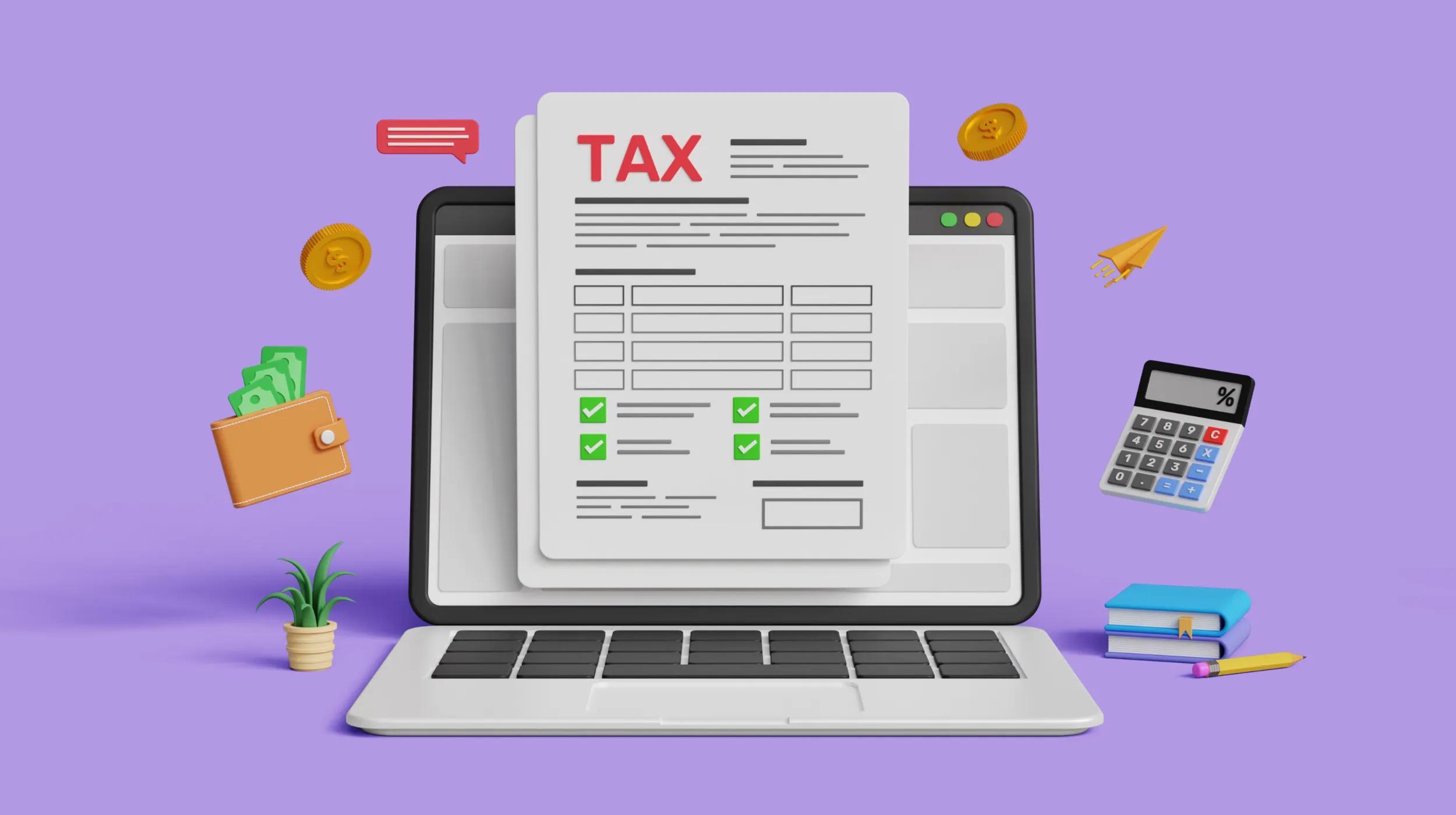If you’ve recently set up your limited liability company (LLC) (congratulations), it’s likely that you’re keeping a key eye on your accounts.
With business tax season on the horizon, it’s time to think about filing your income and expenditure for the first time.
Every type of LLC is subject to IRS tax rules and regulations. To help you navigate this daunting process as a new LLC owner, we'll cover everything you need to know here in this guide.
The importance of tax filing for LLCs
Whether you have a single-member LLC, you're a C Corp—or anything in between—filing your business taxes is a legal obligation.
LLC and taxes go hand in hand. You must file and pay taxes to remain compliant with state and federal law. If you fail to do so in time, you could face a colossal fine.
Each LLC type is subject to its own set of tax requirements and we’re going to cover them in detail soon.
But first, let’s talk about deadlines.
Deadlines for LLC tax filing
If you’re filing taxes for LLC for the first time, you’ll need to know which deadlines that apply to you (remember, filing your taxes late could result in a fine).
| For your reference, here’s a rundown of key LLC tax filing deadlines: |
|---|
| April 15: This is the standard tax filing deadline for almost every business type, including sole proprietors, single-member LLCs, and multi-member LLCs. |
| June 15: This date is worth noting if you’re a corporation with a fiscal year that doesn’t end on December 31. |
| September 15:This is the deadline Form 1065 for LLC partnerships and Form 1120S for S Corporations. |
| October 15: This is the final deadline if you’ve requested (and been granted) a tax filing extension. |
Tax classification for each LLC type
Now that you’re up to speed with the deadlines, let’s look at how to file business taxes according to your LLC type.
Single-member LLC
A single-member LLC is a limited liability company run by a single person or 'solo-preneur'. Let’s look at how to file taxes as a single-member LLC.
For this LLC tax classification, you need to file your business tax details on Schedule C and report your profit or loss on Form 1040.
As a single-member LLC, you're seen as a pass-through entity, meaning any profits or losses are passed through you as an individual, and the 'entity' doesn't pay taxes.
Partnerships or multi-member LLCs
A partnership or multi-member LLC is a limited liability company where two or more people run the business together. Let’s look at how to file taxes for a partnership LLC.
As a multi-member or partnership LLC, you should file your business taxes using form 1065. Each member is required to file their share of profits or losses via Schedule K-1.
FYI: LLC partnership members may owe self-employed taxes unless they’re classed as ‘limited partners.’
S corporation (S corp)
An S corp informs the IRS that the business should be taxed as a partnership. In this case, you’re exempt from ‘double taxation.’
S corps are only liable to pay taxes on a company level, and members don’t have to file any personal returns. If you’re an S corp LLC, you should file your taxes under Form 1120-S.
FYI: If you want to apply to become an S corporation, you should file under Form 2553, which the IRS will then process for approval.
C corporation (C corp)
A C corp is an LLC business structure where a company where the legal owners or shareholders are taxed separately from the entity itself. It’s essentially the opposite of an S corp.
It’s also worth noting that C corporations also have to file taxes at a company level. To file for taxes as a C corp, you should use Form 1120.
The steps to filing business taxes for an LLC for the first time
If you’re filing your LLC taxes for the first time, you should follow these essential steps to ensure the process is as smooth as possible.
1. Figure out your tax structure or corporate status
Before you file your LLC taxes online, you need to know your specific tax structure or corporate status.
Your tax classification for LLC will depend on your limited liability company type. Look at the section above to identify your corporate status and discover which tax filing forms apply to you.
2. Gather the necessary information and documents
You may be wondering, “what documents do I need to file my LLC taxes?”
| Here’s a quick checklist for your reference: |
|---|
| ✓ Your LLC name and employee identification number (EIN) |
| ✓ Your business address |
| ✓ Your LLC’s tax classification |
| ✓ Your state business tax registration and tax ID |
| ✓ Your financial records and income records in full |
| ✓ Your business deductions records and expenses in full |
| ✓ Your applicable payroll and employee tax documents |
| ✓ The forms that are relevant to your LLC classification (see our ‘tax classification for each LLC type’ section) |
3. File your LLC tax return
Once you’ve gathered all of the necessary forms, information, and documents, you should fill everything out as instructed.
You can file your LLC taxes online via the IRS’ official payment portal. Be sure to take your time, double check all of the information you’ve supplied, and get extra consultancy or advice if you need it. That way, you can rest assured that everything you’ve filed is 100% accurate and compliant.
4. Pay your taxes
Once you’ve filed your LLC taxes, you can expect to receive your full calculation from the IRS within 21 days.
When you’ve received your annual tax calculation or bill, you must pay it in full by the deadline specified to avoid any potential fines.
Common mistakes to avoid when filing business taxes for the first time
When filing your taxes as an LLC, knowing what not to do is important as mistakes can cost you time and money.
To file your LLC taxes in the most efficient way possible, you should steer clear of these common errors:
- Choosing the wrong tax classification: Picking the wrong tax classification could result in being subject to the wrong limited liability tax rate. That means you could end up overpaying. Before you file your taxes, make sure you’re completely confident about your tax classification.
- Missing your tax deadlines: As you now know, the standard tax deadline is April 15. But depending on your LLC type and personal business circumstances, there are some other deadlines to keep an eye on. So, make sure you know your deadlines and plan accordingly.
- Failing to keep accurate records: Guessing or estimating your income or expenditure is never a good idea, yet many business owners do it. Make sure your records are 100% accurate and up to date. Hiring a professional LLC accountant or using trusted bookkeeping software are both good ideas if you want to keep your tax records razor-sharp.
- Not declaring your business deductions in full: Declaring all of your business deductions (expenditures) will balance your annual tax bill. As an LLC owner, there are lots of legitimate business deductions you can file. Do your research and make sure you add all of your expenses to your records to avoid overpaying tax.
Filing your LLC taxes for the first time can be daunting, but by following the steps outlined in this guide—you’ll navigate every phase of the process with confidence.
FAQs about filing business taxes
How much does an LLC have to make to file taxes?
As an LLC, you’re required to file taxes regardless of your profits or income. Even if you’ve not made a dollar, you must file your taxes to report any deductions or losses and keep an active paper trial of your business activities.
Can I file my LLC taxes by myself?
Yes. As an LLC owner, you can file business taxes yourself. Before you file your taxes, make sure you know which forms you’re required to fill out and double-check your records for accuracy. If you’re unsure about anything, it’s always good to consult a professional accountant.
What if I have an LLC but never used it?
Even if you’re not actively running your LLC or making a profit, you’re legally required to file taxes and pay any annual fees associated with your business. Although it is worth mentioning that that there are many benefits to operating as an LLC.
What happens if my LLC never makes money?
Nothing will happen if your LLC doesn’t make any money. You’ll still be required to pay taxes, but you won’t be charged any income tax. You’ll also be liable to pay any potential fees or licenses associated with your LLC. If you no longer want these responsibilities, you have the option to dissolve your business.
What happens if I don't file taxes for my LLC?
Filing your LLC taxes is a legal requirement. If you don’t file your LLC taxes, you’ll face legal fees and penalties. Even if you’re not currently making a profit, you must file a return by the deadlines specified by the IRS.
What expenses can I pay with my LLC?
As an LLC owner, you can claim for a number of tax-deductible expenses. These include business property costs, office supplies or equipment, marketing, payroll, operational software, business trip expenses, fuel, insurance, and bank fees. For a full rundown of business expenses, seek advice from a professional accountant.
Disclaimer: This content should not be construed as legal or tax advice. Always consult an attorney or tax professional regarding your specific legal or tax situation.






